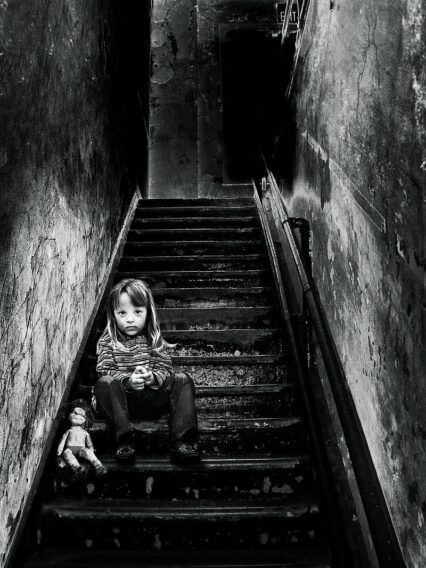The Reality of Sex Trafficking and Social Media ExploitationBy Million Kids dot Org |
|
Online enticement:  This is when someone purposely communicates with someone believed to be a child via the internet with the intent to commit a sexual offense like sextortion (blackmail over a naked image), sexual exploitation including child porn, or abduction possibly leading to sex trafficking. Note: In California, if you are engaged in commercial sex/prostitution and are under the age of 18 it is called sex trafficking. The National Center for Missing and Exploited Children (NCMEC) received 37,872 reports of online enticement in the U.S. in 2020 (up from 19,174 in 2019) and 98% of victims said they did not know the offender offline. NCMEC also registered 17,000 reports of possible child sex trafficking. One in six of the kids reported as missing or runaways were likely victims of sex trafficking. Sex trafficking is the fastest growing crime in the U.S. California is usually the number one state for it, and three out of four victims are U.S. citizens. Sex Trafficking: Almost never does sex trafficking involve direct kidnapping like you may see in the movies, although that can happen (especially in familial incidents), but for 99% of local sex trafficking cases it is usually a girl being lured (“groomed”) into an online fantasy relationship. The victim messages and chats with the offender on the internet. The offender builds a rapport and relationship. Eventually the victim may sneak out to meet the offender in person and then poof the victim is missing. For the girl it often starts out looking like a boyfriend and she may plan a future with him. Then it leads to sexual exploitation: The trafficker may say, “I just need you to do this for my friend,” or “I’m short of money.” It escalates and he will start beating her up, and she is given a daily quota – often up to $1,000 a day or more. If the girl doesn’t make enough money she may not get to eat. He will cut her off from her family and friends. She will find out she may just be one of three or four other girls he is controlling. If the pimp is part of a gang, she may get traded within the gang, and she may be traded between other gangs. They will move her around, from motel to motel to motel. She will be advertised online and won’t know what name she is being sold under, or even what town she is in.She will be locked in a motel room, monitored continuously, waiting for her next sex buyer, and threatened with violence or death against her or or family members or other loved ones if she tries to escape.All the money she was forced to make is turned over to the pimp. She is feeling degraded and embarrassed. The situation is shame-based and it is similar to domestic violence in that the offender makes the girl feel that any violence is her fault, “if you had made your quota I wouldn’t have to beat you up” they will say. The girl blames herself and believes there is no one she can turn to for help.Sextortion: Another example of online enticement is sextortion. Kids will meet someone on the internet who asks for a naked photo. It is amazing how many will actually send out a photo. From there the offender begins to threaten and blackmail them for more sexually explicit photos and videos and in some cases even money. It is important for teens to know, with sexting so prevalent, that having explicit or naked images of anyone under the age of eighteen is illegal – even if the image was taken or given with consent. The CDC has said that 18,000 kids a day are sending a naked photo online. The University of Florida’s research shows 9,000 kids a day are being blackmailed, and the University of Toledo, Ohio said that 58% of them will go out and meet up with the blackmailer to try to get their image back (without telling their mom and dad) where they often get further violated or assaulted. Prevention: How do you prevent this happening to your kids? Start with honest communication from an early age. Talk about technology. It isn’t good or bad, but there are people who use it for bad things. Importantly we have to talk about sex before giving them access. Ask who owns the Internet and help them to understand it isn’t private. Talk about if they have ever thought where naked photos go when they hit send or who is watching their provocative dance on TikTok. Do they understand anything posted or sent can end up being seen by anyone – even predators? They can. Do they know what to do when they get a comment/message from a stranger telling them how beautiful or sexy they are? They should know to immediately delete it. Even with privacy settings on, most social media apps still have ways for strangers to interface with children. Stay on top of the video games they are playing, who they are chatting with and what apps they are using. Limit access to social media until age appropriate. Keep electronic devices where everyone can see them (no bedrooms), and no access to phones after bedtime. You may seem like the “mean” parent but when you consider the alternatives, you have to protect and stay on top of it for them. What to Watch For: Parents should watch for changes in behavior – you know your kids better than anyone else. Are they starting to cut themselves? Or they can’t sleep or are always tired? Maybe they become withdrawn, change their friends, their clothing or quit their extracurricular activities. Or they are missing school. You may walk into the room and they quickly close their device or put it away. They may quit eating for no reason. Maybe they start to run away. Don’t assume it is teen rebellion and spend the time to dig deeper. Sit down with them, you can calmly ask them if they have a naked photo on the internet or something more. It may be a tough conversation but much less tough than having your child disappear or be exploited. What To Do: If your child has been enticed or is being groomed, what parents need to understand is you aren’t arguing with your child or the offender, you are arguing with a fantasy the offender is creating. And when parents go to war with a fantasy they will lose. Remove your child’s blinders by asking questions that will lead them to realize they don’t know who this person is really. If you think there is online enticement, even if you aren’t sure, it is important to contact local law enforcement (what is happening to your child may be part of a larger investigation). Report it to the app or video game company, and report it to NCMEC at 1.800.843.5678 or at www.cybertipline.org (they can also help get explicit images off the web). Your child (and you as parents) may need counseling to deal with the trauma. Don’t be afraid to get additional support. Parents should understand their kids are connected to the entire world and the entire world is connected to them. They live in a world where they could have one million followers with 24/7 access. We all have to step from behind a veil of denial and educate and empower them to live in a world without borders and in homes without walls. View our website at MillionKids.org where we offer much more information and educational training. Or feel free to reach out to us via the website or be emailing [email protected]. This page is (c) 2021, Million Kids dot Org. Provided with kind courtesy to The Hollywood Sentinel. |







